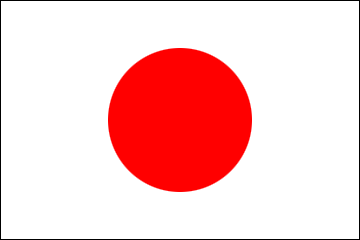Press Release
2016/2/2
[16-01] Irish participation in Japanese Space Mission ASTRO-H
DIAS (the Dublin Institute for Advanced Studies) is a partner in Japan’s ASTRO-H space mission. The spacecraft has now passed all its final tests and has been delivered to the launch site in Tanegashima for a scheduled launch by the Japanese Space Agency JAXA on 12 February.
In accordance with Japanese tradition the mission will be re-named after launch, but for now is still called ASTRO-H. It is a powerful X-ray telescope with, for the first time in a space mission, micro-bolometer detectors which will allow precision spectroscopy in X-rays. It also carries three cameras working in soft and hard X-rays respectively as well as a soft gamma-ray instrument. It will be used to study many astronomical phenomena including accretion onto black holes, jets from active galaxies, particle acceleration in supernova remnants and the dynamics of hot gas in galaxy clusters. In spectroscopy it is expected to be about 30 times better than the best existing instruments. Observations in X-rays are a key part of modern astronomy and can only be made from space as the X-rays are absorbed by the Earth’s atmosphere.
ASTRO-H has been built by a major international collaboration led by JAXA with over 60 contributing institutions in Japan, the US, Canada, and Europe including DIAS in Ireland. DIAS Professor Felix Aharonian is one of three scientists supported by the European Space Agency as part of the ASTRO-H science team and DIAS contributed one scientific member to the project.
Welcoming this scientific cooperation between Ireland and Japan, Mrs Mari Miyoshi, Ambassador of Japan to Ireland said, “I am delighted that the Japanese satellite Astro-H will be launched in partnership with DIAS research team. This project is an important follow up of the joint declaration entitled “Partnership for Innovation and Growth”, issued by Prime Minister Abe and the Taoiseach Enda Kenny when they exchanged reciprocal visits in 2013, resolving to strengthen the ties between our two countries in the field of Research, Development and Innovation”, and continued, “I hope that teams involved will obtain the expected results, and that the close connections between Japan and Ireland, and broader international cooperation will go from strength to strength in the years ahead”.
The Director of the School of Cosmic Physics, Prof Luke Drury, commented “This is a marvellous opportunity for our young students and researchers to collaborate with Japanese colleagues in expanding our understanding of the universe.”
JAXA web site: http://astro-h.isas.jaxa.jp/en/
Images of satellite
http://jda.jaxa.jp/result.php?lang=e&id=952280b64b5c074e15fa396a8e786e25
http://jda.jaxa.jp/result.php?lang=e&id=535c510c1506595432520df278cd476d
(Contact)
Prof Luke Drury, DIAS: ld@cp.dias.ie, Tel: +353-86-8228815
Prof Felix Aharonian, DIAS: felix.aharonian@dias.ie, Tel +353-86-7358222
Press and Cultural Affairs Section, Embassy of Japan in Ireland
Tel: 01 - 202 8305, E-mail: cultural@ir.mofa.go.jp, Website: https://www.ie.emb-japan.go.jp/itprtop_en/index.html
In accordance with Japanese tradition the mission will be re-named after launch, but for now is still called ASTRO-H. It is a powerful X-ray telescope with, for the first time in a space mission, micro-bolometer detectors which will allow precision spectroscopy in X-rays. It also carries three cameras working in soft and hard X-rays respectively as well as a soft gamma-ray instrument. It will be used to study many astronomical phenomena including accretion onto black holes, jets from active galaxies, particle acceleration in supernova remnants and the dynamics of hot gas in galaxy clusters. In spectroscopy it is expected to be about 30 times better than the best existing instruments. Observations in X-rays are a key part of modern astronomy and can only be made from space as the X-rays are absorbed by the Earth’s atmosphere.
ASTRO-H has been built by a major international collaboration led by JAXA with over 60 contributing institutions in Japan, the US, Canada, and Europe including DIAS in Ireland. DIAS Professor Felix Aharonian is one of three scientists supported by the European Space Agency as part of the ASTRO-H science team and DIAS contributed one scientific member to the project.
Welcoming this scientific cooperation between Ireland and Japan, Mrs Mari Miyoshi, Ambassador of Japan to Ireland said, “I am delighted that the Japanese satellite Astro-H will be launched in partnership with DIAS research team. This project is an important follow up of the joint declaration entitled “Partnership for Innovation and Growth”, issued by Prime Minister Abe and the Taoiseach Enda Kenny when they exchanged reciprocal visits in 2013, resolving to strengthen the ties between our two countries in the field of Research, Development and Innovation”, and continued, “I hope that teams involved will obtain the expected results, and that the close connections between Japan and Ireland, and broader international cooperation will go from strength to strength in the years ahead”.
The Director of the School of Cosmic Physics, Prof Luke Drury, commented “This is a marvellous opportunity for our young students and researchers to collaborate with Japanese colleagues in expanding our understanding of the universe.”
(END)
Further InformationJAXA web site: http://astro-h.isas.jaxa.jp/en/
Images of satellite
http://jda.jaxa.jp/result.php?lang=e&id=952280b64b5c074e15fa396a8e786e25
http://jda.jaxa.jp/result.php?lang=e&id=535c510c1506595432520df278cd476d
(Contact)
Prof Luke Drury, DIAS: ld@cp.dias.ie, Tel: +353-86-8228815
Prof Felix Aharonian, DIAS: felix.aharonian@dias.ie, Tel +353-86-7358222
Press and Cultural Affairs Section, Embassy of Japan in Ireland
Tel: 01 - 202 8305, E-mail: cultural@ir.mofa.go.jp, Website: https://www.ie.emb-japan.go.jp/itprtop_en/index.html
